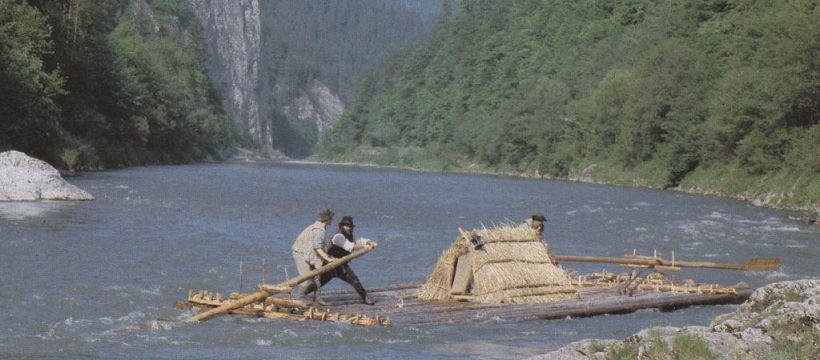Hungarian director Judit Elek addressed the biggest controversy of her career at Intl. Film Festival Rotterdam.
Answering Variety’s question during the launch of “The Lady from Budapest,” a new book dedicated to her legacy, Elek opened up about a scene from her film “Memories of River,” which she still views as “essential” despite accusation of animal cruelty.
In the film, inspired by an actual anti-Semitic incident back in the 1880s, as well as a trial for “ritual murder,” several sheep were burnt alive in front of the camera.
“The beginning of the film is extremely brutal, because we are talking about a pogrom. The scene [depicting] sheep in flames, burning, is a representation of several millions of Jews perishing,” she noted.
“When the day came when we had to shoot the scene of Jákob’s [a shepherd played by Zoltán Mucsi] house being set on fire, it had to be done in one take. You couldn’t film it twice. The previous day, we took the sheep from the slaughterhouse. They were bare, naked. They were waiting to be slaughtered, so they were sheared already.”

“I said to myself: ‘These sheep are destined to die. No matter what.’ That was their fate. If we film this scene, they will die. And it will be painful for them. But it was also painful for the 6 million Jews who were killed during the Second World War.”
Elek admitted that Brigitte Bardot, the actor and animal rights activist, “cursed her” because of the film.
In the book, obtained by Variety, Elek makes claims that if the animals hadn’t been sheared, “nothing would have happened” as she has been doing tests with sheep hair and intended to “impregnate the sheep with a certain liquid.” The final outcome was different, however.
“The sheep were roasted alive, and at the end they were roasted in a pan, and we ate them,” she states in the publication.
“There is a predecessor who also had animals killed in his film: Andrzej Wajda,” continued Elek during the conversation.

The Polish director, who died in 2016, received an honorary Oscar for lifetime achievement. He allegedly killed a horse on the set of his controversial 1965 drama “The Ashes.”
“I think that both of us had to do this: we did it for a purpose. I knew him well and I know it was painful for him too. I trust that God will forgive us both.”
Born in 1937, Elek has been celebrated at the fest also with a retrospective dedicated to her work, from aforementioned “Memories of a River” to “The Lady from Constantinople,” “The Trial of Martinovics and the Hungarian Jacobins” and “On the Field of God in 1972-73,” about young women in the Hungarian provinces.
“The world, and the critics, who have never seen anything like that before, were wondering if these were people talking about their own lives or actors playing a role. They started to talk condescendingly about these girls. I had to fear for them and for myself,” she admitted.
Elek also shared some advice for younger filmmakers, urging them to be “demanding, strict, frank and sincere.”
“The world doesn’t know your intentions in advance, so you have to be dedicated, stubborn, committed. I don’t like this word, [saying] that we are ‘artists.’ But in the end, only you can decide if you are an artist or not.”
Admitting she couldn’t live without actors, she called them “her second family.”
“When I was making films, my actual family would feel neglected. My son experienced it and he became a filmmaker too – that was the only example he could follow,” she said.
“All the films I have done are my films, just like my children, and I am in every single one of them.”
Read More About:
Source: Read Full Article
